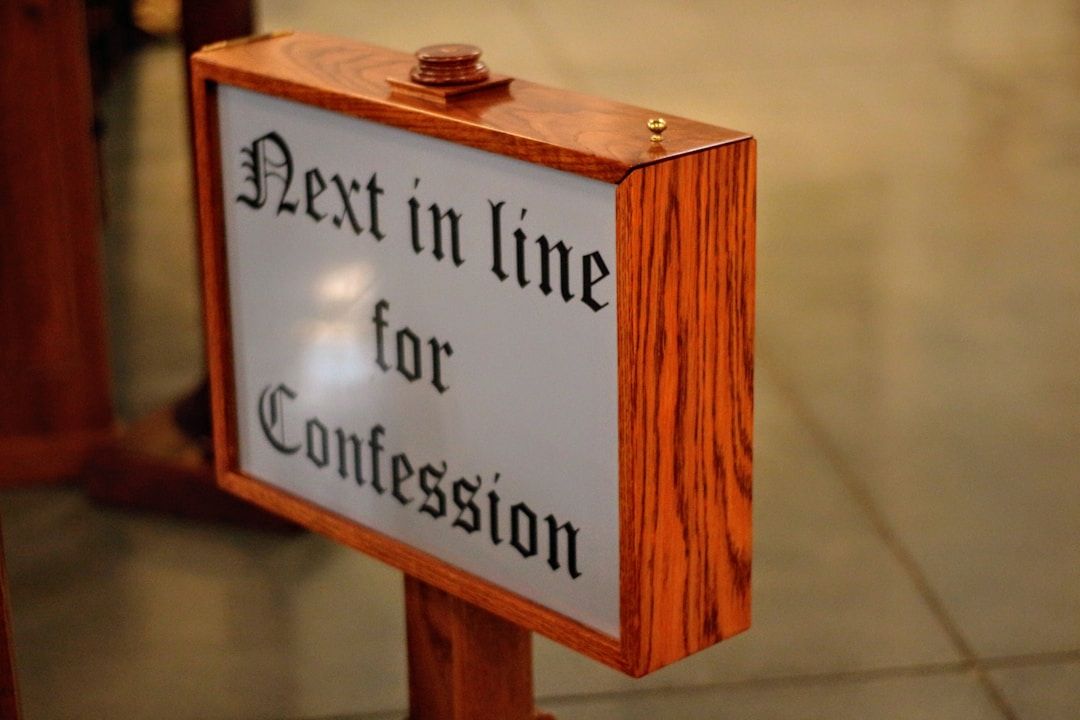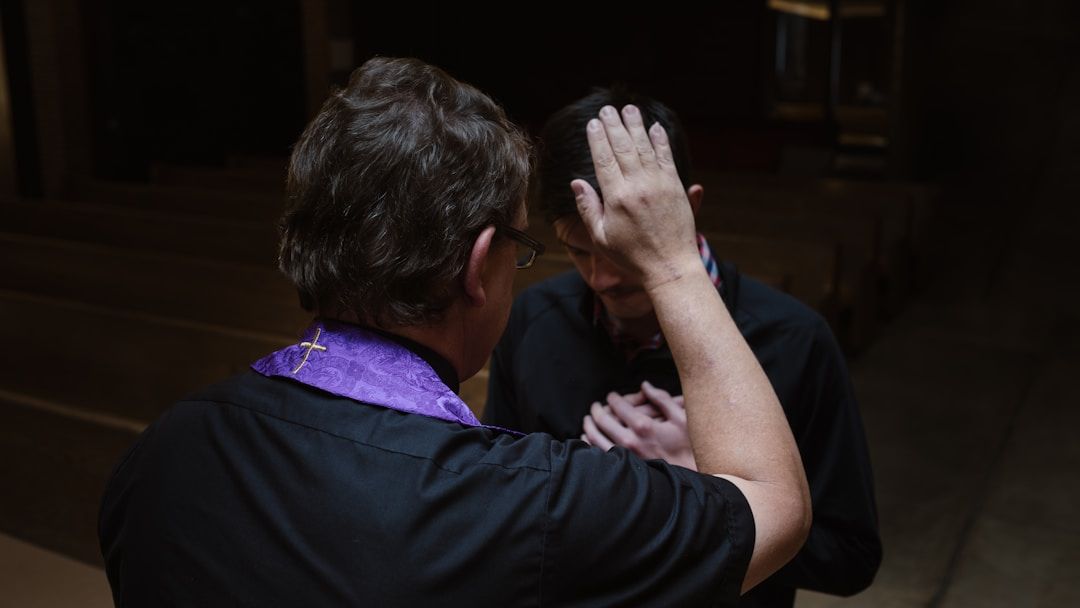
Fourth Week of Lent
How to Go to Confession
Before Confession comes contrition. This means you need to realize that you have sinned and regret your transgressions because they offend God and cause harm to yourself and others. You'll want to prayerfully examine your conscience to discover your failings. Ask the Holy Spirit to reveal your sins to you. The examinations provided in this week's LANE resources may be helpful to you.
If you have deliberately done something that you knew was seriously wrong, you have committed a mortal sin and should go to Confession as soon as possible! Mortal sins cut off our relationship with God and put us in danger of losing the spiritual fight entirely. This entails any number of negative consequences during life and damnation after death. Don't let mortal sins slide!
If you have committed a less serious sin, or you sinned without full freedom, or you sinned without realizing the gravity of your action, you have committed a venial sin. We should still confess our venial sins regularly because they weaken our relationship with God and our ability to engage in spiritual warfare. They can also lead us into mortal sin over time.
Once you've examined your conscience, don't be afraid to seek the sacrament. God loves you and wants to forgive you, no matter what you've done! It's time to get in line at your local parish. This is an opportunity to grow in the virtue of patience.
If you have deliberately done something that you knew was seriously wrong, you have committed a mortal sin and should go to Confession as soon as possible! Mortal sins cut off our relationship with God and put us in danger of losing the spiritual fight entirely. This entails any number of negative consequences during life and damnation after death. Don't let mortal sins slide!
If you have committed a less serious sin, or you sinned without full freedom, or you sinned without realizing the gravity of your action, you have committed a venial sin. We should still confess our venial sins regularly because they weaken our relationship with God and our ability to engage in spiritual warfare. They can also lead us into mortal sin over time.
Once you've examined your conscience, don't be afraid to seek the sacrament. God loves you and wants to forgive you, no matter what you've done! It's time to get in line at your local parish. This is an opportunity to grow in the virtue of patience.

You can choose to confess anonymously (behind a screen) or face-to-face. The priest will greet you and lead you in the Sign of the Cross. Then you should say, "Bless me, Father, for I have sinned. It has been (approximate days, months, or years) since my last Confession." Then tell the priest all of the sins you are aware of. Try to keep things brief and specific. The priest may ask some questions. When you are finished, conclude with words such as "I am sorry for these and all my sins."
At this point, the priest may give you some advice or encouragement. Confession isn't the place for a full counseling session, so you will want to schedule that separately if necessary. The priest will give you some act of penance to perform. This gives you an opportunity to change your ways, repair the damage caused by your sin, and draw closer to God. It might be prayer or an action, and you should try to do it as soon as you can. Doing your penance doesn't earn you forgiveness (nothing could), but it's good for you!
Next is the Act of Contrition, a prayer of repentance and reform. You can pray a standard version (including the ones in this week's LANE resources) or pray spontaneously.
At this point, the priest may give you some advice or encouragement. Confession isn't the place for a full counseling session, so you will want to schedule that separately if necessary. The priest will give you some act of penance to perform. This gives you an opportunity to change your ways, repair the damage caused by your sin, and draw closer to God. It might be prayer or an action, and you should try to do it as soon as you can. Doing your penance doesn't earn you forgiveness (nothing could), but it's good for you!
Next is the Act of Contrition, a prayer of repentance and reform. You can pray a standard version (including the ones in this week's LANE resources) or pray spontaneously.

Finally, we get to the heart of the sacrament: absolution. The priest will extend his hands over your head and pray these words: “God, the Father of mercies, through the Death and Resurrection of his Son, has reconciled the world to himself and poured out the Holy Spirit for the forgiveness of sins; through the ministry of the Church may God grant you pardon and peace, and I absolve you from your sins in the name of the Father, and of the Son, and of the Holy Spirit.”
God has forgiven your sins, so it is only right to thank him! The sacrament concludes with the priest praising God. You can reply "Thanks be to God" or "His mercy endures forever." Finally, the priest will dismiss you, often by saying "Go in peace," and you will leave the confessional to do your penance and continue the battle against sin, strengthened by God's grace.
God has forgiven your sins, so it is only right to thank him! The sacrament concludes with the priest praising God. You can reply "Thanks be to God" or "His mercy endures forever." Finally, the priest will dismiss you, often by saying "Go in peace," and you will leave the confessional to do your penance and continue the battle against sin, strengthened by God's grace.
Grant, O Lord, that we may begin with holy fasting this campaign of Christian service, so that, as we take up battle against spiritual evils, we may be armed with weapons of self-restraint.
This collect prayer begins the Mass for Ash Wednesday, the first day of Lent. Jesus is calling us to "take up battle against spiritual evils." We'll explore fasting itself in a few weeks; during the week of Ash Wednesday, we're going to dig into an important set of weapons the Lord gives us to fight evil: sacramentals.
What's a sacramental? Well, if you attend Mass on Ash Wednesday, you're probably going to receive one on your forehead.
This collect prayer begins the Mass for Ash Wednesday, the first day of Lent. Jesus is calling us to "take up battle against spiritual evils." We'll explore fasting itself in a few weeks; during the week of Ash Wednesday, we're going to dig into an important set of weapons the Lord gives us to fight evil: sacramentals.
What's a sacramental? Well, if you attend Mass on Ash Wednesday, you're probably going to receive one on your forehead.

A Ministry of Our Lady of the Lake Catholic Church
480 152nd Avenue, Holland, MI 49424
lanecatholic@oll.org
Privacy Policy and Terms of Use
Copyright © 2026